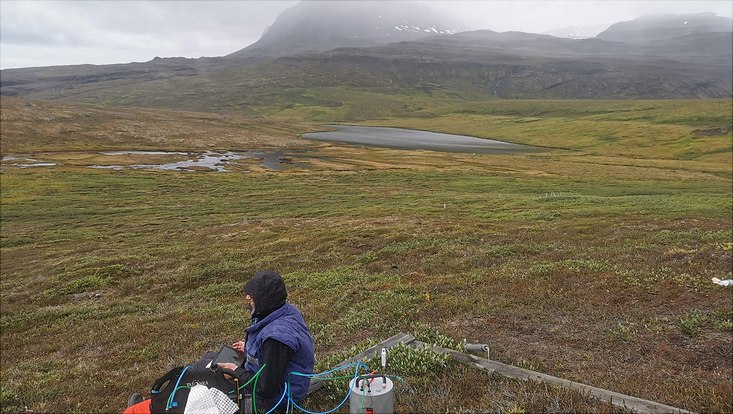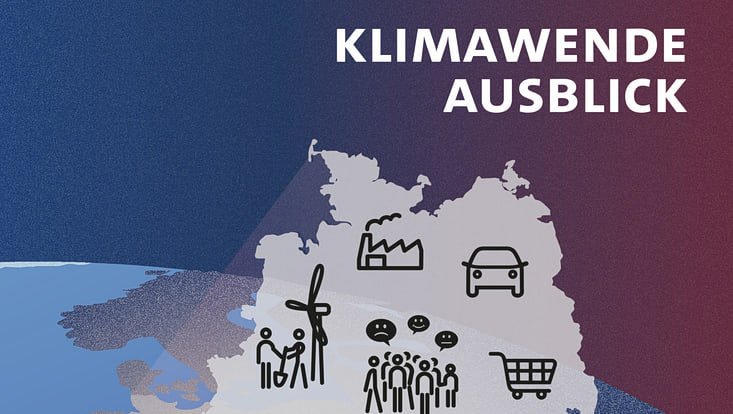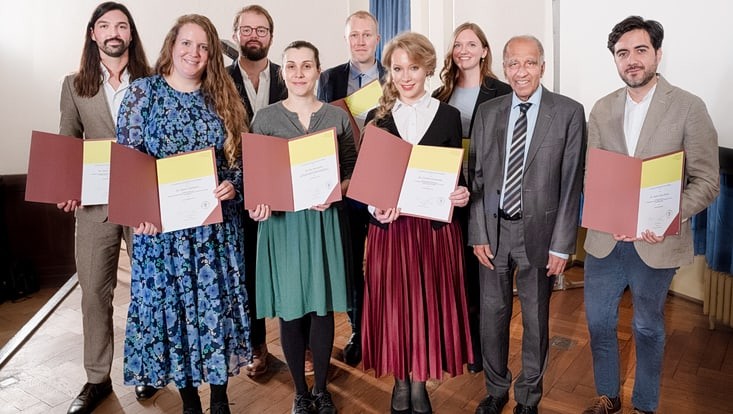and Society (CLICCS)
Taking a closer look at permafrost soilsResearch expedition departs for Greenland
26 August 2024, by CLICCS

Photo: UHH/ Christina Steffens
This August, experts from the Cluster of Excellence CLICCS left for Greenland to investigate the effects of climate change on its permafrost landscapes. Their goal is to determine how climatic changes affect the soil’s water, carbon and nutrient budgets. To gain a comprehensive picture of the status quo, they will collect samples from the Arctic soil in different seasons.
Until just a few weeks ago, Greenland’s Disko Island was still covered in ice and snow. Now, in the late summer, the tundra is covered by a colorful mix of soft mosses, lichen, Arctic wildflowers and shrubs. The soil has thawed in some places and patches of open water have formed. And that’s precisely what Evan Wilcox is most interested in – because the tundra’s water budget has a major influence on the formation and loss of permafrost soils. The soil researcher will measure the water levels in the “Red River” and collect samples from the river and surrounding soils, which he will later analyze in the lab. Together with Lars Kutzbach, a Professor of Soils in the Climate System, he will also prepare measurement tasks for his fellow CLICCS researchers, designed to gauge the effects of extreme weather events on Greenland’s permafrost landscape.
Understanding changes in permafrost
Moisture affects e.g. nutrient availability in permafrost-influenced soils. Accordingly, Joseph Tamale, an expert on plant and soil systems, will gather soil cores from sites with varying levels of soil moisture and vegetation on Disko Island, which he will subsequently use for climate change simulation experiments back at the lab in Hamburg. By doing so, he hopes to determine how the changed soil moisture and availability of nutrients like phosphorus produced by climate change affect the production and decomposition of organic material in Arctic soils.
During their stay in the Valley of the Winds, the CLICCS researchers will also meet with experts from the MOMENT project, including Carolina Voigt and Claudia Fiencke from the University of Hamburg. A collaborative project bringing together various research institutes and funded by Germany’s Federal Ministry of Education and Research (BMBF), MOMENT stands for “Permafrost Research Towards Integrated Observation and Modelling of the Methane Budget of Ecosystems.” The project focuses on the question of how climatic conditions and the properties of permafrost-influenced soils affect the Arctic’s methane budget.


